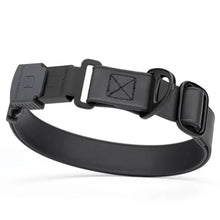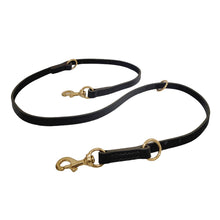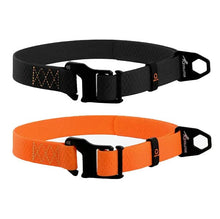Aging Gracefully: How to Support Your Senior Dog's Health And Well-being

All lucky dogs age. Some age younger and harder than others. So what are some things you can do to reduce the effects of aging? Let's dive right into it.
● Do Your Research.
If you adopt a dog, you adopt it with the knowledge that you don't know the dog's complete background or health history. They've seen a vet, but they received the necessary treatment for things that were outwardly bothering them. They didn't do any testing for hip dysplasia, elbow dysplasia, degenerative myelopathy, etc. You would have to test for those things on your own, and it could be worth it. If you know a dog has severe hip dysplasia at an early age, that gives you time to save up money for any possible surgery they may need later, for example.

If you go to a breeder, ask to see the OFA or PennHip results for both parents via text, email, etc. If they haven't done the testing, hang up the phone. Hanging up that phone may very well save you tens of thousands of dollars on surgeries and a lot of heartbreak. Any excuse to not do basic testing like hips and elbows is just that, an excuse. And a bad one at that. Dogs with hip dysplasia and elbow dysplasia age early and will have a lot more pain a lot earlier than dogs without it.
Also, realize that two dogs with perfect hips and elbows can still have a puppy with dysplasia. The risk is just lower if you get puppies from tested parents, whose parents were tested etc. Also remember that over-exercising puppies, having them do a lot of jumping, etc. can cause hip dysplasia in dogs that likely would've had normal joint formation. Keep both of those things in mind.
● Low Impact Exercise.
Exercise is great for your dog, and your dog will live a longer, happier life if you exercise them regularly. But some forms of exercise are better than others, especially when dogs are already showing signs of aging. Instead of running on hard-packed ground or roads and sidewalks, try grassy fields with more cushion.

If your older dog shows soreness after running on softer surfaces, consider swim therapy or simply taking your dog swimming when the weather permits. The cartilage will wear down in the joints eventually, but protecting them as best as you can while still keeping your dog active helps a lot.
● Weight Management.
Most dogs in the US and UK are overweight. If you look in the comments section of any dog-related page, especially when large dogs are involved ... and even more so with any guardian breed of dog, you will see pictures of overweight dogs with captions like "My big boy is 130lbs and only 11 months." No German Shepherd on this planet should weigh 130 lbs. Even ones who are 3 inches taller than the standard's maximum height would still be around 105 lbs. maximum if they were in good shape.
I'm saying this from a place of love and not criticism. If your dog is overweight, you are taking years off of his or her life. And even worse, those last years will be more painful than a dog that is fit and built like a distance runner, which is exactly what German Shepherds were created to do. Run long distances all day, acting as a living fence for sheep. More weight means more wear on the joints. More likely to develop kidney, liver, and heart disease and so much more. Keep your dogs thin and remember that you feed your dog. Dogs don't get overweight because they choose to eat too much. Dogs get overweight because they're being fed too much.

● Supplements.
Good, high-quality supplements like salmon oil, glucosamine, and chondroitin work miracles for joints. The salmon oil you might have to buy separately, but glucosamine and chondroitin can readily be found in the same supplement. Just peek at the ingredients and make sure both are present. Glucosamine and chondroitin protect cells called chondrocytes, which help maintain cartilage structure. It works on people, especially for people with arthritis of the knees, but it seems to work better for dogs, and for other joints and not just the knee.
I was recently asked if it was okay to give to puppies or young adult dogs with no symptoms. I must say that I haven't seen studies done on dogs who were given supplements since they were pups or young adults, but research shows that it seems to work well for dogs who are beginning to slow down or show symptoms of joint pain. I would suggest not experimenting on your dog and that it's probably best to wait until signs and symptoms are beginning to show.

● Diet.
We don't take a stance on what exactly to feed your dog. We give information that can help you, the people, make up your own minds. Research multiple different diets, talk to people who feed different food brands and different types of diets.
Whatever commercial diet or type of diet you choose, try to go with the highest quality version of that diet possible. Not necessarily the most expensive, but the one that's most nutritious. For example, feeding your dog super expensive, super fatty Kobe beef may take a lot of coin, but that would be a terrible addition to a diet.
Eating a quality diet will help your dog live longer and be healthier during its golden years.

● Talking With Your Vet.
Your veterinarian will be the best source of information on a lot of things that can help you with your dog. Whether that be prescription pain medication or pointing you in the direction of a local place that does rehabilitation work. Bonus points if they know of a place that has a pool for older dogs or dogs suffering from dysplasia.
If your dog ends up with dysplasia, they'll be the person to see about surgical intervention. If your dog develops heart, kidney, liver, or any other disease that becomes increasingly more likely as your dog ages, they will be your first line of defense. Most vets recommend that you see them twice a year. When your dog starts to get older, don't be afraid to ask if you can see your vet 3, or 4 times a year for a checkup. Half of the fight to resolve health issues is to discover them early and address them.

I hope this can help all of you get extra time with your canine companions. Extra time that's good, pain-free, or pain-managed time. Because that's what really matters. Thank you all. Please leave a like and a share. We really do appreciate it and it helps more than you know.
You may also like: 7 Tips To Help You Care For A Senior Dog






















